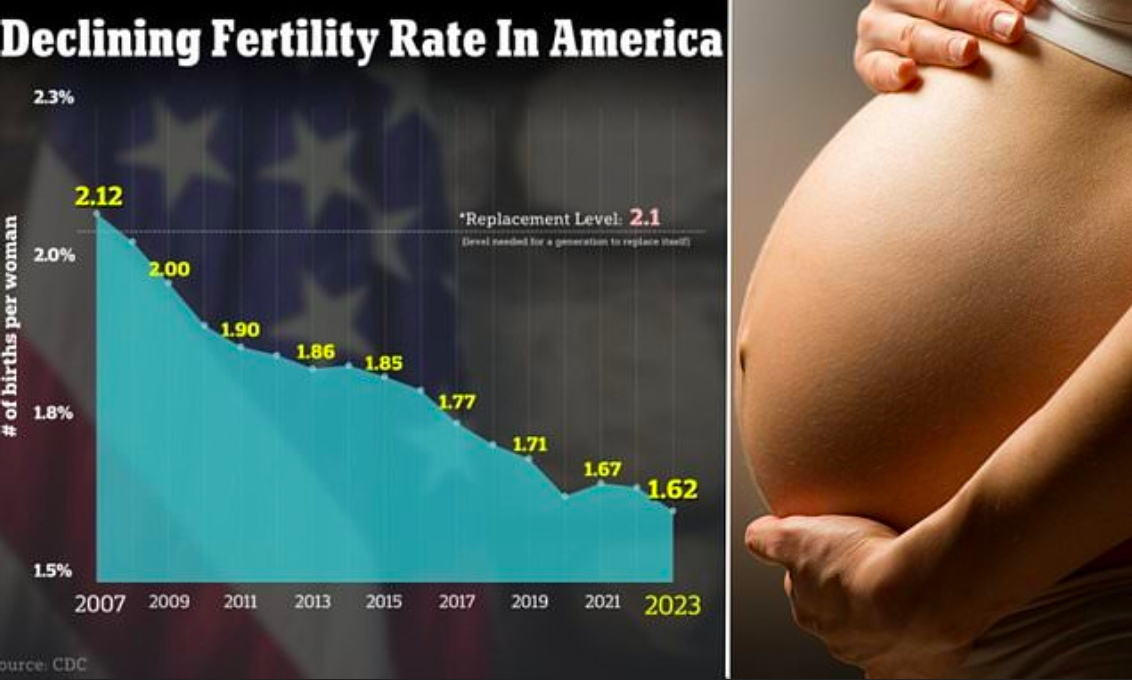
Health and Human Services Secretary Robert F. Kennedy Jr. issued a dire warning today about a cascading health crisis among America’s youth, exposing a dramatic 50% drop in sperm counts, plummeting testosterone levels, early puberty in girls, and a surge in colorectal cancer among teens.
Speaking at a press conference, Kennedy painted a grim picture of the health of the nation, declaring, “We’re seeing crises in fertility among teenagers today. An American teenager has less testosterone than a 68-year-old man. We’re seeing sperm counts drop to 50% of historical rates. Girls in our country are reaching puberty six years early—10 to 13 years old.”

BYPASS THE CENSORS
Sign up to get unfiltered news delivered straight to your inbox.
You can unsubscribe any time. By subscribing you agree to our Terms of Use
Kennedy, who has been a controversial figure since his appointment as HHS Secretary in February, didn’t stop there. He also pointed to an “explosion of cancers,” specifically noting, “We talked just recently about colorectal cancers, which never occurred in young people. And now we’re seeing kids and their teens with colorectal cancer, and it’s exploding.”
RFK Jr Unleashes Bombshell: Vaccine-Autism Link Proven, Culprits Face Justice
The claims about declining male reproductive health align with scientific findings. A study published in Nature Communications in 2021 highlighted the global challenge of male infertility, noting that impaired semen quality accounts for roughly 50% of infertility cases among couples worldwide. As population collapse looms in Western countries, male infertility is becoming an increasingly dire problem.
Additionally, a paper from the National Institutes of Health’s PubMed Central, titled “Adverse trends in male reproductive health: we may have reached a crucial ‘tipping point’,” reported that in Denmark, approximately 40% of men now have sperm counts below 40 million per milliliter—a threshold associated with subfertility.
The study warned that European men may be nearing a critical tipping point, with median sperm counts dropping to 46 million per milliliter between 1996 and 2005, a steep decline from historical levels estimated at 100 million per milliliter.
RELATED: US Gov’t Admit Millions of Vaxxed Young Women Are Infertile: ‘Looming Population Collapse’
On the issue of early puberty, Kennedy’s claim that girls are reaching puberty at 10 to 13 years old—six years earlier than historical norms—also finds support. Historically, the average age of puberty onset for girls in the U.S. has been around 12 to 13 years, though studies show a gradual decline over the past century, with some girls now starting as early as 10.
A 2020 study in JAMA Pediatrics noted that the average age of menarche (first menstruation) has dropped by about three months per decade since the 1960s, driven by factors like improved nutrition, obesity, and exposure to endocrine-disrupting chemicals. The trend of earlier puberty is well-documented and aligns with his broader narrative of environmental harm.
The most alarming part of Kennedy’s statement may be his warning about colorectal cancer in teens. While rare, colorectal cancer rates in younger populations are indeed rising. A 2025 report from the American Cancer Society noted a significant increase in incidence among adults under 50, with women under 50 seeing an 82% higher rate compared to men in the same age group, up from 51% in 2002. Although the report didn’t specifically address teens, the trend of younger diagnoses has been linked to lifestyle factors like poor diet, sedentary behavior, and possibly environmental exposures—issues Kennedy has vowed to tackle through his “Make America Healthy Again” agenda.
Kennedy’s remarks have sparked both alarm and skepticism. Dr. Joel Kaufman, a physician-epidemiologist at the University of Washington, cautioned against overgeneralization, noting that while some chronic diseases are on the rise, overall health metrics like life expectancy have improved, and cancer mortality rates have dropped by 34% since 1991, according to the American Cancer Society.
“We’ve made strides in public health, and we can’t ignore that,” Kaufman said. “But we also can’t ignore emerging threats, especially to younger generations.”

